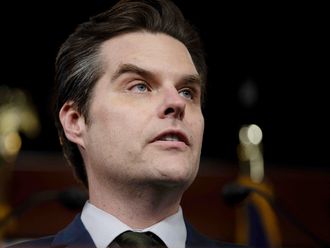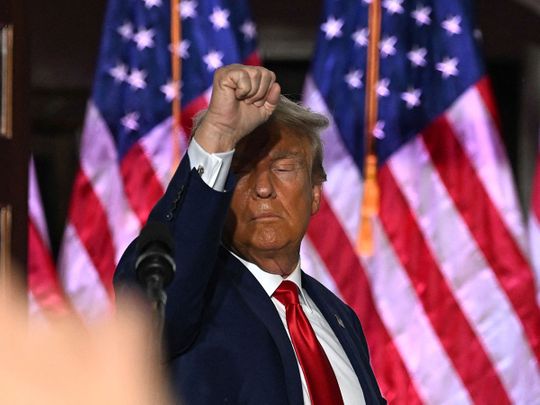
Highlights
- First time a former president charged in a federal indictment
- Judge ordered Trump to not discuss case with witnesses
- Trump, his valet, accused of jeopardizing national security
- Trump argues he had the right to take classified documents
- Former president is the frontrunner for 2024 GOP nomination
Miami: Former US President Donald Trump pleaded not guilty on Tuesday to federal criminal charges that he unlawfully kept national-security documents when he left office and lied to officials who sought to recover them.
Trump's plea, entered before US Magistrate Judge Jonathan Goodman in a federal court in Miami, sets up a legal battle likely to play out over coming months as he campaigns to win back the presidency in a November 2024 election. Experts say it could be a year or more before a trial takes place.
Walt Nauta, Trump's former White House valet and post-presidency personal aide, appeared alongside his boss at Tuesday's hearing. Nauta did not enter a plea, and was asked to come back to court on June 27 for his arraignment. He was also released pending his next court appearance.
Trump listened in silence, barely opened his mouth
Trump frowned and leaned back in his chair but did not speak during the 47-minute hearing. Crossing and uncrossing his arms, and dressed as usual in a dark suit and red tie, the former president listened in silence to the judge and prosecutor, at one point whispering into the ear of his lawyer, Todd Blanche.
No travel restrictions but barred from discussing case
He was allowed to leave court without conditions or travel restrictions and no cash bond was required. Goodman ruled that he was not allowed to communicate with potential witnesses in the case. The government agreed to alert the defense to a list of people, including Trump employees and Secret Service agents that the former President should not discuss the case with.
"Today we witnessed the most evil and heinous abuse of power in the history of our country. Very sad thing to watch," Trump said after returning from his arraignment hearing in Miami to his golf course in Bedminster, New Jersey.
It was the second courtroom visit for Trump in recent months. In April, he pleaded not guilty to state charges in New York stemming from a hush-money payment to a porn star. Trump is the first former president to be charged with federal crimes. Trump has repeatedly proclaimed his innocence and accuses Democratic President Joe Biden's administration of targeting him.
READ MORE
- Donald Trump indicted on 37 counts in secret documents case
- US: What happens next in the Trump documents case? What indictment means for his political campaign
- Trump’s own words used to build case against him
- Who is Jack Smith, the special counsel who brought the Trump indictment?
- Video: Trump arrives in Florida to face charges, maintains lead in poll
What is Trump accused of doing?
Trump was charged in an indictment with 37 criminal counts for charges including violations of the Espionage Act, conspiracy to obstruct justice, and making false statements to investigators.
In January 2022, Trump agreed to return 15 boxes of records to the US National Archives and Records Administration, and officials discovered in them more than 700 pages of records marked as classified.
The Justice Department issued a grand jury subpoena in May 2022 asking Trump to return any other classified records. Trump's attorneys later turned over 38 pages marked as classified and attested that all records with classified markings had been returned to the government - a claim that later proved to be false.
In August, the FBI conducted a search of Trump's Palm Beach home and seized approximately 13,000 more records, about 100 of which were marked as classified. Of those, some were marked as "top secret" - the classification level reserved for the country's most closely held secrets.
Prosecutors have charged Trump with violating a section in the Espionage Act which applies to someone who has "unauthorized possession" of national defense information - the same crime to which Winner pleaded guilty.
What are the charges?
Trump is accused of keeping documents related to “nuclear weaponry in the United States” and the “nuclear capabilities of a foreign country,” along with documents from White House intelligence briefings, including some that detail the military capabilities of the US and other countries, according to the indictment.
Prosecutors allege Trump showed off the documents to people who did not have security clearances to review them and later tried to conceal documents from his own lawyers as they sought to comply with federal demands to find and return documents.
The top charges carry penalties of up to 20 years in prison.
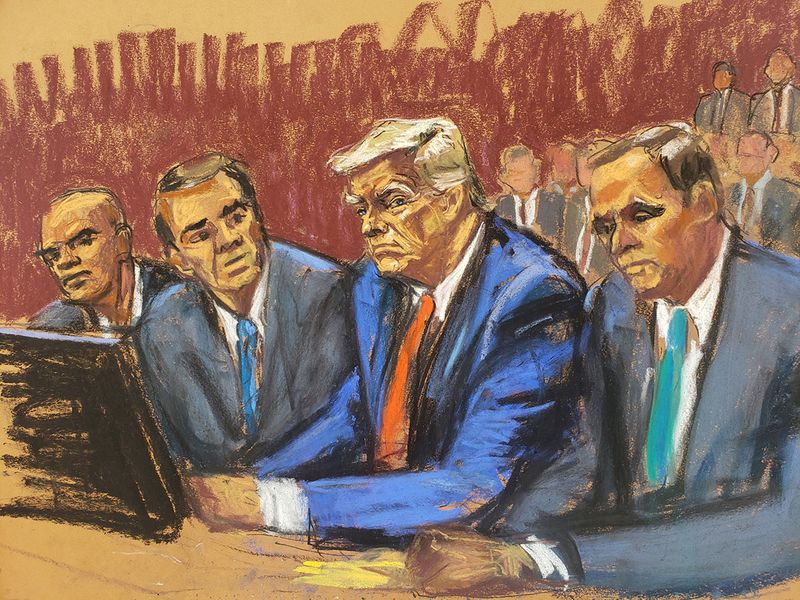
What happened in court?
Trump's lawyer entered a not-guilty plea for him, and the former president was released on his own recognisance without no bail. He will not have to surrender his passport or have his personal travel restricted. He scowled at times during the 50-minute hearing, but was otherwise expressionless. He folded his arms, fiddled with a pen and crossed his fingers back and forth as he listened.
Trump leaned over to whisper to his attorneys before the hearing began but did not speak during the proceedings. He remained seated while his lawyer Todd Blanche stood up and entered the plea on his behalf. “We most certainly enter a plea of not guilty,” the lawyer told the judge.
Blanche objected to barring the former president from talking to witnesses, including his co-defendant, valet Walt Nauta, saying that they work for him and he needs to be able to communicate with them. After some back and forth, Magistrate Judge Jonathan Goodman said Trump cannot talk to them about the case except through his lawyers, but he can talk to them about their jobs.
Nauta was granted bond with the same conditions as Trump. He did not enter a plea because he does not have a local attorney. He will be arraigned June 27 before Chief Magistrate Judge Edwin Torres, but he does not have to be present.
Court records don't indicate when the next hearing in Trump's case will be.
Unlike Trump's arraignment in New York , no photographs were taken because cameras aren’t allowed in federal court. There were, however, sketch artists, and theirs will be the only images from the actual courtroom appearance.
Security remained tight outside the building, but there were no signs of significant disruptions despite the presence of hundreds of protesters. Miami Mayor Francis Suarez said on Fox News that there were no arrests or “major incidents.”
What happened after court?
Before heading to the airport, Trump’s motorcade took a detour to Versailles Restaurant in Miami’s Little Havana neighbourhood, where a small crowd of supporters awaited him. Posing for photos and saying “food for everyone,” Trump commented briefly on his case.
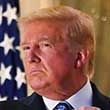
I think it’s going great. We have a rigged country. We have a country that’s corrupt
Several religious leaders at the restaurant prayed over him for a moment.
Afterward, Trump flew back to his Bedminster, New Jersey, golf club, where he gave a speech to hundreds of cheering supporters, many clad in red “Make America Great Again” hats.
“This day will go down in infamy,” Trump said, describing the federal prosecution against him as “the most evil and heinous abuse of power in the history of our country.”
What happens next?
It could be a year or more before a trial takes place. Trump's plea, entered before US Magistrate Judge Jonathan Goodman in a federal court in Miami, sets up a legal battle likely to play out for months while he seeks to win back the presidency in a November 2024 election.
Federal prosecutors can be expected to begin handing over evidence to Trump’s lawyers. That could include years of correspondence between Trump’s lawyers, the US National Archives and Records Administration and prosecutors as they haggled over the documents.
At some point, Trump's lawyers are expected to file a motion to dismiss the case for a variety of reasons, including perhaps his claim he declassified the documents before taking them.
They are also likely to argue the case should be tossed for what they allege was misconduct by prosecutors, including alleged violations of a legal doctrine that permits people to keep communications with their lawyers private.
Motions to dismiss in criminal cases are standard but rarely succeed because defendants face a high burden convincing a judge that their case is too flawed to even go before a jury.
Prosecutors are also entitled to the benefit of the doubt on their factual allegations at that stage.
How did this case come about?
Officials with the National Archives and Records Administration reached out to representatives for Trump in spring 2021 when they realized that important material from his time in office was missing.
According to the Presidential Records Act, White House documents are considered property of the US government and must be preserved.
A Trump representative told the National Archives in December 2021 that presidential records had been found at Mar-a-Lago. In January 2022, the National Archives retrieved 15 boxes of documents from Trump’s Florida home, later telling Justice Department officials that they contained “a lot” of classified material.
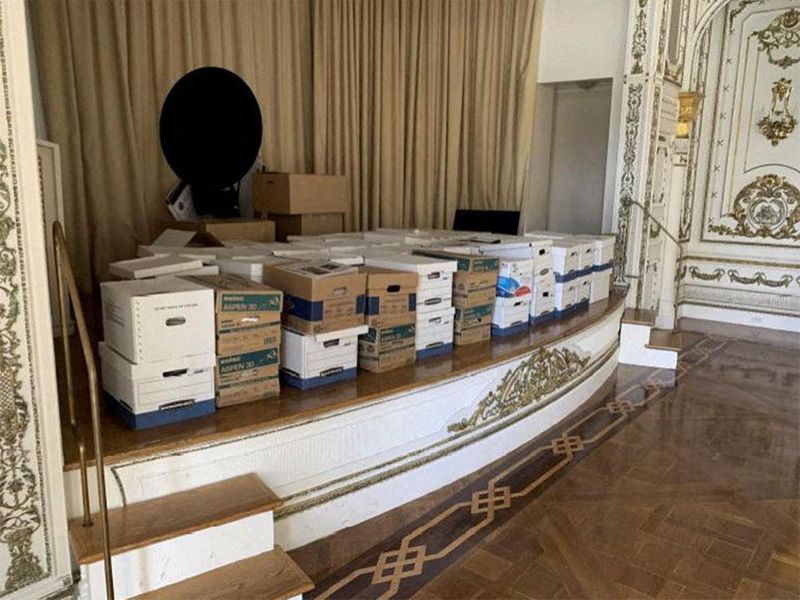
That May, the FBI and Justice Department issued a subpoena for remaining classified documents in Trump’s possession. Investigators who went to visit the property weeks later to collect the records were given roughly three dozen documents and a sworn statement from Trump’s lawyers attesting that the requested information had been returned.
But that assertion turned out to be false. With a search warrant, federal officials returned to Mar-a-Lago in August 2022 and seized more than 33 boxes and containers totaling 11,000 documents from a storage room and an office, including 100 classified documents.
In all, roughly 300 documents with classification markings — including some at the top secret level — have been recovered from Trump since he left office in January 2021.
When will the case go to trial?
Any potential trial could be many months away even though Special Counsel Jack Smith, heading the prosecution, has said Trump will have a "speedy" trial.
Trump, who has denied wrongdoing and calls the case a politically motivated “witch hunt,” has a right to face trial within 100 days, but that rarely happens in complex cases. The parties will likely agree to extend deadlines as they pore over evidence and argue legal disputes before a judge.
Will trump testify?
That would be up to him. Criminal defendants are not required to testify and rarely do because subjecting themselves to cross-examination by prosecutors is risky. Trump did not testify at a recent civil trial over sex abuse and defamation claims brought against him by writer E. Jean Carroll. A jury found Trump liable in that case in May.
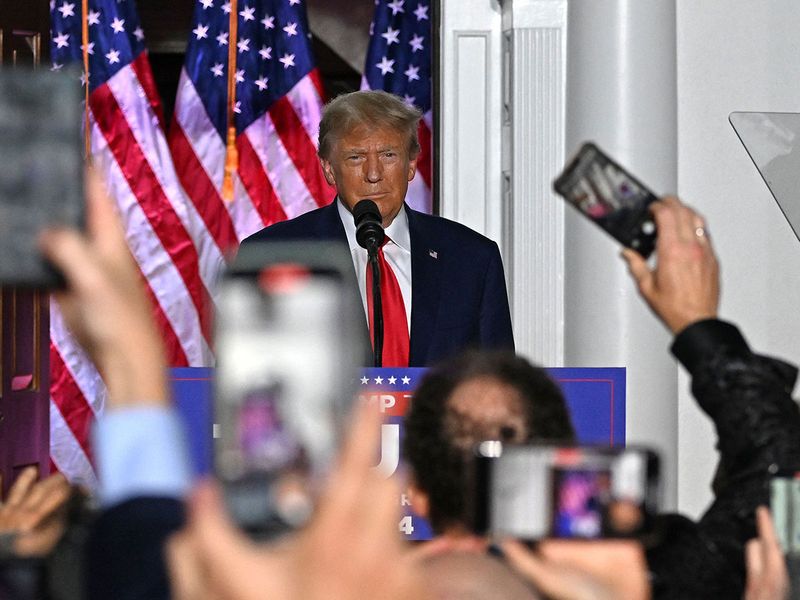
What impact will the case have on campaign?
The charges include violations of the Espionage Act, conspiracy to obstruct justice and making false statements to investigators.
None of those would automatically prevent Trump from campaigning or taking office if he is convicted. His legal woes have not hurt his standing with Republican voters.
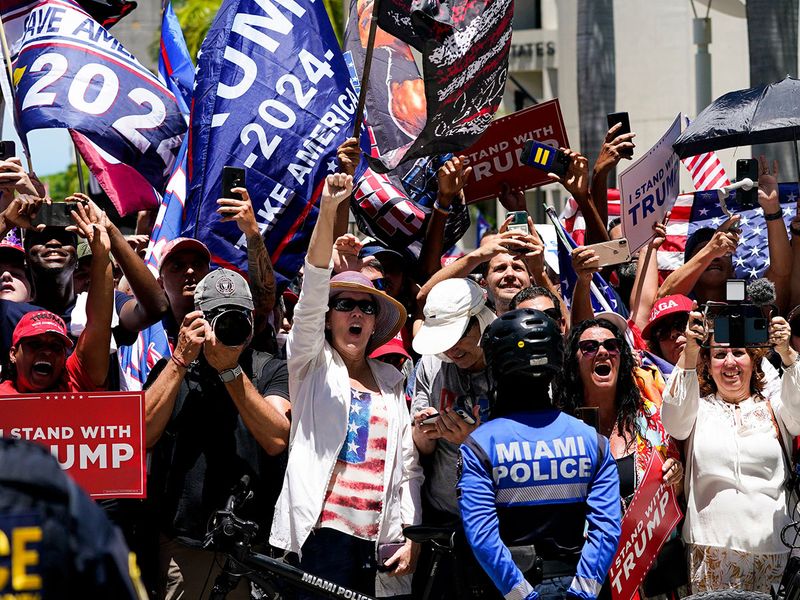
A Reuters/Ipsos poll released on Monday showed that Trump still led rivals for the Republican nomination for the 2024 presidential election by a wide margin, and that 81% of Republican voters viewed the charges as politically motivated.
Most of Trump's Republican presidential rivals have lined up behind him and accuse the FBI of political bias, in a sharp turn from the party's traditional support for law enforcement.
Trump has used legal cases and investigations he faces as fundraising tools, telling supporters that he is under attack and needs their help.
What happens in the case if Trump wins the election?
It is unlikely the prosecution will proceed if Trump wins the 2024 presidential election.
The US Department of Justice is part of the executive branch, and presidents are the top federal law enforcement officers in the country. Federal prosecutors generally serve at their pleasure.
The Justice Department has a decades-old policy that a sitting president cannot be prosecuted. The department can deviate from policy in “extraordinary circumstances” with the approval of the U.S. attorney general, the country’s top law enforcement official.
A lame-duck attorney general serving under President Joe Biden, in this case Merrick Garland, could ignore that policy and forge ahead, but Trump, as president, could fire him and hire an acting replacement of his choice before naming a permanent successor subject to U.S. Senate confirmation.
Didn’t Biden and Pence have classified documents, too?
Yes, but the circumstances of their cases are vastly different from those involving Trump.
After classified documents were found at Biden’s think tank and Pence’s Indiana home, their lawyers notified authorities and quickly arranged for them to be handed over. They also authorized other searches by federal authorities to search for additional documents.
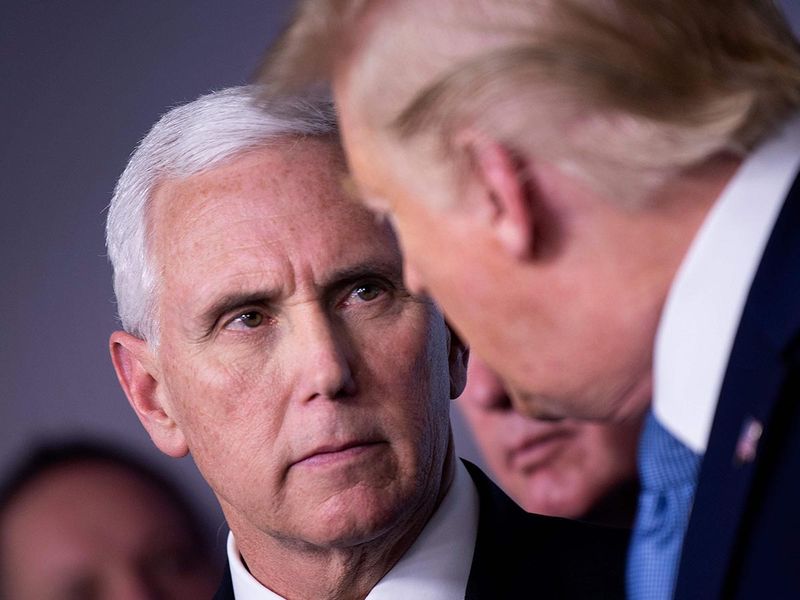
There is no indication either was aware of the existence of the records before they were found, and no evidence has so far emerged that Biden or Pence sought to conceal the discoveries. That’s important because the Justice Department historically looks for willfulness in deciding whether to bring criminal charges.
A special counsel was appointed earlier this year to probe how classified materials ended up at Biden’s Delaware home and former office. But even if the Justice Department were to find Biden’s case prosecutable on the evidence, its Office of Legal Counsel has concluded that a president is immune from prosecution during his time in office.
As for Pence, the Justice Department informed his legal team earlier this month that it would not be pursuing criminal charges against him over his handling of the documents.
What about Hillary Clinton?
In claiming that Trump is the target of a politically motivated prosecution, some fellow Republicans have cited the Justice Department’s decision in 2016 not to bring charges against former Secretary of State Hillary Clinton, Trump’s Democratic opponent in that year’s presidential race, over her handling of classified information.
Clinton relied on a private email system for the sake of convenience during her time as the Obama administration’s top diplomat. That decision came back to haunt her when, in 2015, the intelligence agencies’ internal watchdog alerted the FBI to the presence of potentially hundreds of emails containing classified information.
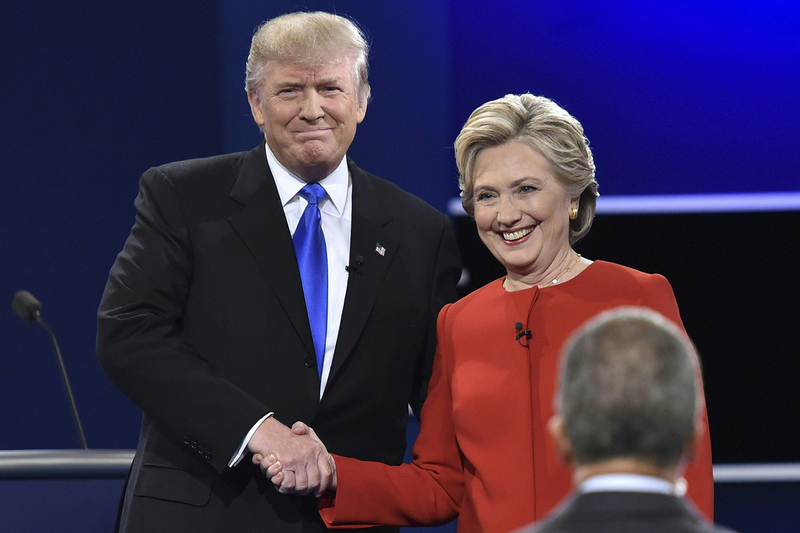
FBI investigators would ultimately conclude that Clinton sent and received emails containing classified information on that unclassified system, including information classified at the top secret level. Of the roughly 30,000 emails turned over by Clinton’s representatives, the FBI has said, 110 emails in 52 email chains were found to have classified information, including some top secret.
After a roughly yearlong inquiry, the FBI closed the investigation in July 2016, finding that Clinton did not intend to break the law. The bureau reopened the inquiry months later, 11 days before the presidential election, after discovering a new batch of emails. After reviewing those communications, the FBI again opted against recommending charges.
At the time, then-FBI Director James Comey condemned Clinton’s email practices as “extremely careless," but noted that there was no evidence that Clinton had violated factors including efforts to obstruct justice, willful mishandling of classified documents and indications of disloyalty to the US.


